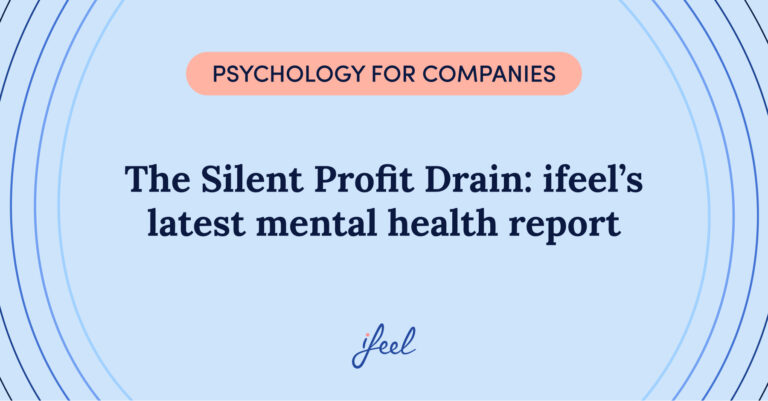Technological advances in recent years have not only changed the way we access information but have also impacted the way we traditionally access different services.
In this context, and in turn, impacted by the 2020 pandemic, healthcare providers have had to adapt, using technology and new platforms developed to bring health to more places. This is how ‘telemedicine and digital health’ concepts were born.
Telemedicine and digital health are transforming the way companies address the well-being of their employees. This technological revolution not only improves the efficiency of healthcare services but also offers innovative solutions for mental and physical healthcare.

What is telemedicine?
Telemedicine uses information and communication technologies to provide health services remotely. This includes virtual medical consultations, remote diagnostics, patient monitoring and the delivery of health information.
Health professionals can interact with patients without needing physical presence through digital platforms such as mobile applications, video calls, and messaging systems. This modality not only improves access to healthcare, especially in rural or hard-to-reach areas but also optimises time and resources for both patients and healthcare providers.
The evolution of telemedicine
Telemedicine and digital health, in general, have seen exponential growth in recent years.
For companies, especially those with a geographically distributed workforce, telemedicine represents an efficient and cost-effective solution. It is a modality that allows employees to access medical consultations without the need to travel, thus reducing waiting time and improving accessibility.
Benefits of telemedicine and digital health in companies
Integrating telemedicine into corporate health insurance offers a wide range of benefits that positively impact both employees and the organisation as a whole.
Some of the key benefits are highlighted below:
1. Immediate and convenient access to health services.
Telemedicine allows employees to access medical consultations and health services from any location, eliminating the need for travel and reducing waiting time. This is especially beneficial for companies with a geographically distributed workforce, as it ensures that all employees, regardless of their location, can receive timely medical care.
This modality has also benefited doctors and patients, making it easier for them to deliver services and access specialists. Studies show that 93% of physicians found clear advantages in using digital health tools, with the percentage of telemedicine visits growing from 14% in 2016 to 28% in 2019, and reaching 80% by 2022 .
2. Reducing costs
Telemedicine and digital health help significantly reduce the costs associated with traditional medical visits. Virtual consultations are generally less expensive than face-to-face consultations, allowing companies to lower their employee health insurance costs. In addition, telemedicine can help reduce absenteeism, as employees can receive prompt medical attention and return to work more quickly.

3. Improved employee productivity and satisfaction
Quick and easy access to health services contributes to the improvement of employees’ overall well-being, which translates into higher productivity and job satisfaction. Feeling supported by the company when it comes to their health, employees are more engaged and motivated, which strengthens the work environment and talent retention.
4. Personalised care and continuity of care
The integration of telemedicine and digital health into healthcare models allows for a more continuous and personalised follow-up of patients, facilitating the management of chronic diseases and the prevention of complications. This ensures more comprehensive healthcare tailored to the individual needs of employees, promoting better long-term health.
5. Innovation and efficiency in health management
Digital technologies enable companies and insurers to improve efficiency in health management and health insurance. Implementing digital health solutions facilitates real-time monitoring of employee health, optimising decision-making and claims management.
In addition, insurers can use these technologies to offer products and services that are more personalised and tailored to their customers’ needs.
Mental well-being solutions in the digital age
Mental well-being is a growing concern in the workplace, as stress, anxiety and other mental health issues can negatively affect employee productivity and well-being. For this reason, awareness of mental health care has increased, and health insurers need to be prepared to respond to patients’ demands in this area.
In this sense, telemedicine and digital health offer a viable solution to address these issues by providing mental well-being services through digital platforms, which make mental health care more accessible, personalised and efficient.
Javier Sordo Gómez, Head of People at Thoughtworks, an ifeel partner company, shares his experience:
“Before ifeel came into our lives, we had another company operating this space. However, it was much more limited and with a low usage level. During the pandemic, our partners asked us to approach the issue more holistically and align with our values to best support our diverse community. After a lot of research, we finally came up with ifeel, which was a perfect fit for our needs.“
Mental health solutions for insurers include online therapies, psychological consultations and mental well-being programmes, which enable employees to access professional support in a discreet and convenient way, fostering a healthier and more balanced work environment.
The downloadable talk, “Prioritizing Mental Health to Unlock Success,” underscores the importance of integrating mental health strategies within corporate settings. Featuring insights from industry leaders, the discussion reveals how telemedicine and digital health can be leveraged to provide accessible mental health support, ultimately driving organisational success through improved employee satisfaction and productivity.

Future of telemedicine and digital health
The future of telemedicine and digital health promises to be even more innovative. With the continued advancement of technology, we are already seeing the integration of artificial intelligence and advanced data analytics to further personalise healthcare.
In this regard, companies and insurers that embrace these innovations will be better positioned to offer efficient and effective healthcare services, thereby improving the overall well-being of their employees and customers.
In addition, telemedicine and digital health can play a crucial role in the prevention and management of chronic diseases, providing continuous monitoring and personalised support. This not only improves employees’ quality of life, but also reduces long-term costs for companies and insurers.
Technology for insurers and reinsurers
At ifeel, we know that telemedicine and digital health are redefining healthcare in the business environment. For the executives of large companies and insurers, these technologies offer a unique opportunity to improve the accessibility, efficiency and quality of healthcare services. This is why the strategic adoption of these technologies is not only an investment in the health of employees, but also in the future of the company.
It is, therefore, timely for insurers to rely on experts to ensure that their product remains at the cutting edge. To assist in this process, ifeel has developed a mental well-being solution for insurers to help insurers increase accessibility and reduce mental health claim costs.
This service allows insurers to receive personalised, data-driven advice on the most effective measures to detect mental health problems in their policyholders, accurately understand users’ needs, and respond appropriately to their claims, thanks to our innovative triage system.
This approach helps insurers provide continuous and adaptive support, improving customer satisfaction and loyalty. In addition, this solution helps reduce the frequency and severity of mental health-related claims, optimising risk management.
Clients such as SCOR, AXA, and Femi Connecting Healthcare already rely on our services, which improve the quality of life of their policyholders and increase their organisations’ operational efficiency.
We hope you found this article on telemedicine and digital health interesting. If you would like to learn more about our mental well-being solution for insurers, simply request it, and we will contact your team as soon as possible.











